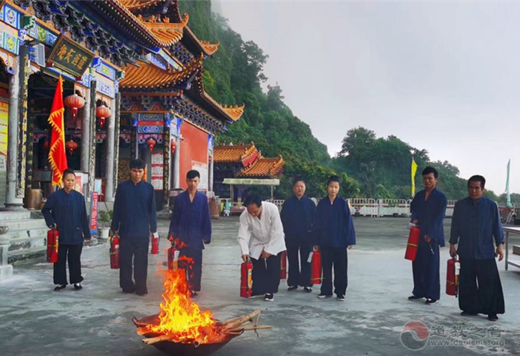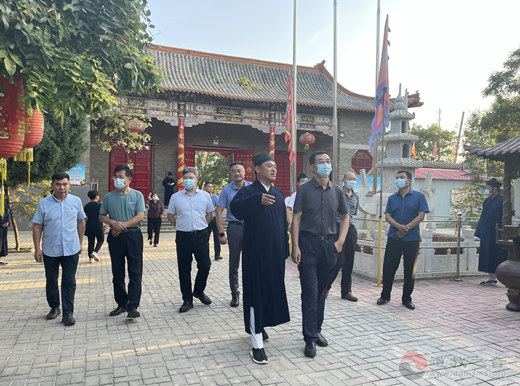
罗颖:叠山纪艺术家出席酒会:2018年7月12日(周四)下午6至8时展期:2018年7月12日 至8月25日汉雅轩:香港 中环 毕打街十二号 毕打行四零一室
东坡翁叹「望断故园心眼」,直挑出林泉千年不宣之秘。
园林未经骚人提点,不被画人演绎之前,委实跟百姓家宅无异。卧荫赏蕉、竹林品茶之闲趣,厕杂于童子池戏、石阵迷藏的喧哗;甚至不得不与家人庭前晾衣、山亭牌局同乐;又或者陷于恶邻相呲、隔墙谩骂;凡此种种,都在同一时空并行。虽然,园林始终是人间胜地,即使堕于声色享乐,扰以世俗杂音,也未免让人向往。
林泉一说无他,可称「园」者皆是「故园」。这又何解?主人蹉跎千里以外,犹绕萦方寸之间,亟欲归去而终不可至,这个故园才是主人潜存眼目之下的真境。故园专为主人独守,非其人不得擅自闯入。有人踯躅夜巷,流连天末。转至一处,人境喧闹嘎然寂止,忽觉圆荷泻露之灵光一闪,曲港鱼跳的生命跃动,此时天河洞开,四时并转。此乃真园。园者归宿之舍,泊夜之津,必须潜心方可淹至,无心眼者觅不着蹊径。坡翁所望断心眼之园惟见于梦,而且亦惟坡翁眼目可见。这是真诗人痴墨客的境界。境界之「界」是真幻两分的关口,以眼目所触为幻,心眼所见为真。所以惟有「故园」乃真园。
故园,想象的园。沈三白从陋室外望沧浪亭外廊,以碗莲盆景接借窗前粼粼波光,亦可谓别得园林雅趣。设想没有浮生六记的流传,此中雅意毕竟是浮光掠影,无法成为众生的想象。而无沈三白后半生的浪迹天涯,沧浪亭对岸的陋室也不会成为「故园」。
故园是画家境界的归宿,是他心底欲望的造型。关键是:欲望的造型并非常人可自见,所以不是人人有园可归。罗颖的故园,既熟悉又怪奇。景行处处借寓古画,每每又轻松翻出幻界。唐宋经过千年修为再脱胎换髓,洗净凡尘实景,隔绝人间噪音,换来出世的恬静。此处麻雀惊飞而山岳振,孤鹤藏身而洞溢仙气;虽然不涉神仙幻景,但显然不似人间。遥想楚大夫行吟江畔所目击的瑰丽,可知罗颖此境离兰汤不远,难怪山披杜若而禽饮石泉。走在罗颖的巴黎街上,有如转入闹市中的丘壑,每移步只怕惊动幽鸟。
张彦远论隋唐高手,誉称妍质相参,谓「迹简意淡而雅正」,又批评「今人之画错变而无旨」。可知妍质不当则有伤「雅正」,妍与质恰当必须「有旨」。那么旨从何而得?曰:得旨者是心眼中有故园可归者。
人民共和第六十九年小暑前五日写于香江
The Remembered Garden:On Luo Ying’s Created World
Chang Tsong-Zung
The poet Su Dongpo once wrote of his fear that he might never be able to return to the ‘remembered garden’ of home.[ Su Dongpo (1037-1101), also known as Su Shi, was a celebrated Song-dynasty literatus and statesman. The reference is to his poem ‘Yongyu le’, and the line reads wangduan guyuan xinyan (lit., ‘I can no longer see the garden of home in my mind’s eye’)—Trans.]
Before poets eulogized gardens, or painters created their own garden narratives, the garden was really just part of the everyday fabric of people’s lives, an extension of the family dwelling. It was a place where one could lounge in the shade of the banana trees, enjoy a tea break in the bamboo grove while children cavort in the pond, and shout and giggle in a game of hide-and-seek amidst the rockery. One might even hang the washing out to dry in the courtyard, or engage in a loud cursing match with unpleasant neighbours next door. But no matter how much random activity there might be, or how raucous things might get, the garden was always a most desirable place, a locus of beauty and enjoyment—a retreat to which one would always long to return.
When we speak of the garden, it is always the guyuan, or the ‘remembered garden’ of the mind. Why define it this way? Because anyone who has ever experienced a garden, and who has travelled far afield and lingered in distant places, will always seek in their mind’s eye for the garden in their memory: they will always yearn to return to it, even though they will never be able to reach that destination. This is because the remembered garden is no longer the ‘garden of home’, but a garden that now exists within their imagination alone. As they step into this garden, worldly clattering suddenly ceases, and they take note of wonders such as the radiant shimmer of a dewdrop rolling off the petal of a lotus or, they hear the life-affirming splash of a leaping fish. This is the real garden. The ability to cross the distance to this garden, to uncover where it lies in the deepest regions of the heart, requires meditation and insight, and those unequal to the task will never discover the way there. Su Dongpo’s remembered garden was a place he saw in a dream, and it was shown to him alone. This garden is the true realm of the poet, and it can only be entered through a gate that opens onto a path between reality and illusion. What the mind sees is an illusion, and what the heart remembers is real. Thus it is the remembered garden, the guyuan, that is the true garden.
The remembered garden is a garden of the imagination. When the Qing memoirist Shen Sanbai (18th century) looked out of the window of his humble dwelling towards the pond of the famed Surging Waves Pavilion in Suzhou, he saw it through a single lotus flower arrangement placed in a small bowl on the windowsill. As he describes it in his Six Records of a Floating Life, that flower arrangement merged with the dancing, sparkling light of water shining right in front of his window: in his own humble manner Shen Sanbai brought alive the delights of the garden. This experience would have been ephemeral had it not been captured in writing, without which it would never have become part of our collective imagination. We can also be sure that, if in his later years Shen Sanbai had not journeyed far abroad, the dwelling where he stayed opposite to the Surging Waves Pavilion would never have become his guyuan.
The ‘remembered garden’ is where the artist always seeks to return; it is the form that embodies the deepest longing of the artist’s heart-mind. The crucial point is that this ‘form of longing’ cannot be seen by most people, and by extension, not many people have a garden of memory that they can return to. Luo Ying’s ‘remembered garden’ is both familiar and strange. Her compositions are replete with visual references to paintings of past masters, and yet easily cross over into fantastical worlds. These imageries from Tang and Song paintings have taken a thousand years for this essential transformation to emerge in Luo Ying’s art, to reach this realm where the dust of the world’s daily grind is shaken off, and its noise banished. In this world, mountains quiver as sparrows flit across the sky; and grottoes shimmer with mysterious auras where solitary cranes seek shelter. Although these are not fairylands, they are yet other-worldly. Walking along Luo Ying’s vision of Parisian streets, one seems to drop into a hidden fold in the road, a strange haven in midst of the street’s hustle and bustle, where one might startle a rare bird with the sound of one’s footsteps.
In his assessment of early masters, Tang dynasty art historian Zhang Yanyuan (9th century) praised the best painters for their ability to balance decoration and form, which distinguishes them from later painters whose inventiveness lacked ‘principle’. In the context of the discussion above, we might try our own interpretation, and explain the loss of the guiding ‘principle’ of fine art as the result of having lost the memory of a ‘remembered garden’.
Written in Hong Kong in early summer in the 69th year of the People’s Republic
(Translation by Valerie C. Doran)
关键字: 内容标签:罗颖,张颂仁罗颖 张颂仁
如果本站的内容资源对您有所帮助

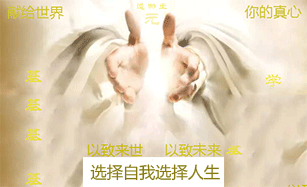
献给世界,你的真心,以致来世,以致未来



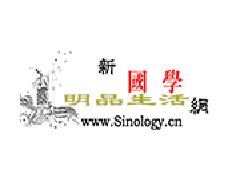

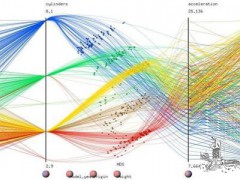
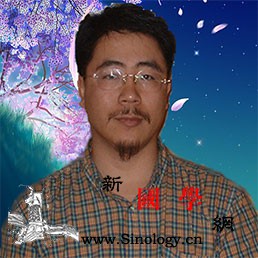

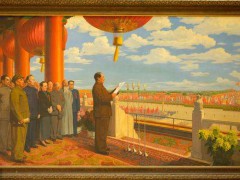
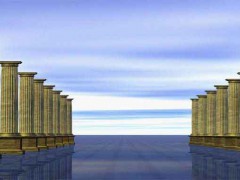

 推荐好文
推荐好文

